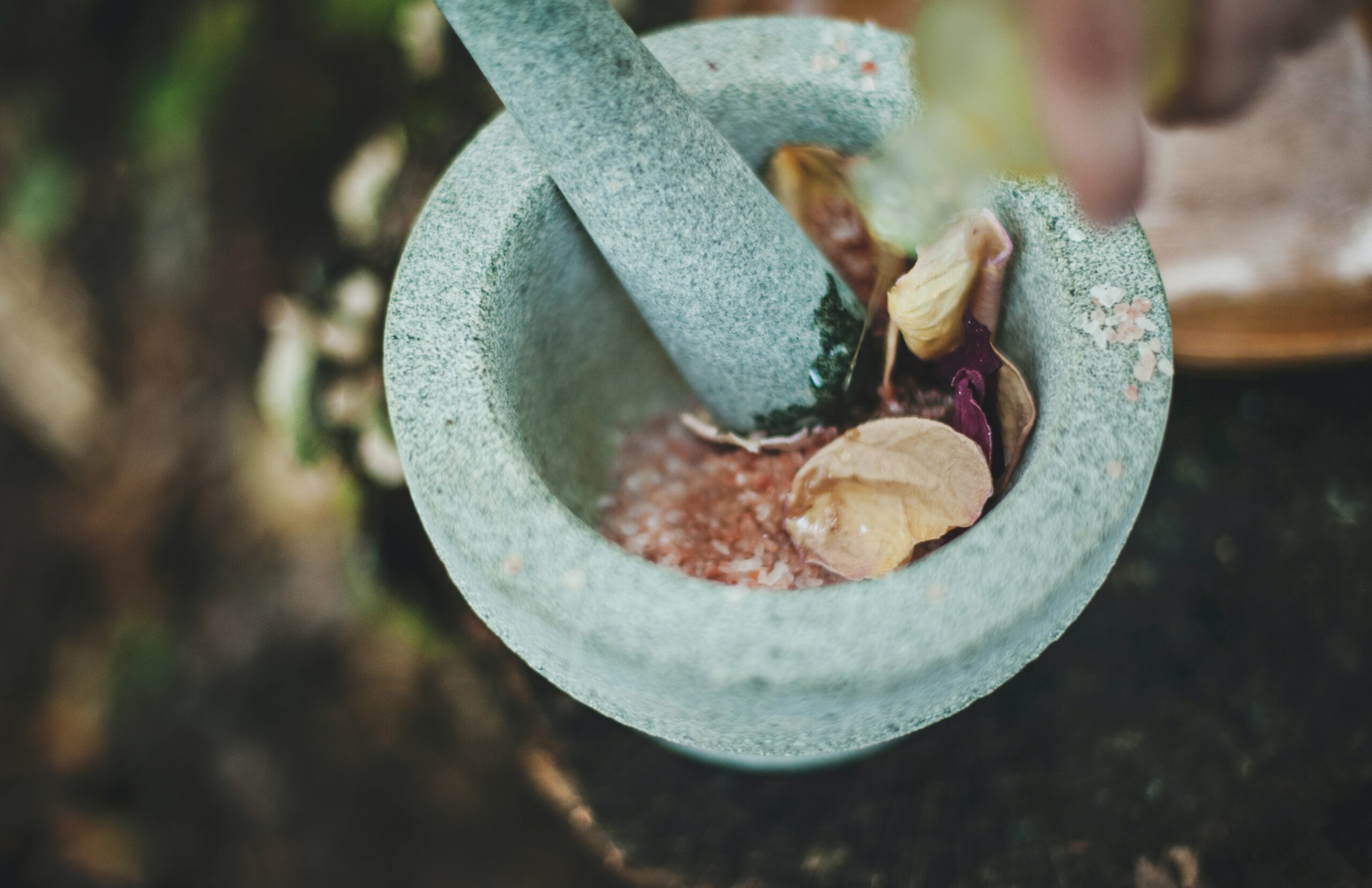
Photo by Katherine Hanlon on Unsplash
Folk medicine is, or should be, antithetical to capitalism, meaning it should not be possible to trademark, copyright, or otherwise own and sell plants and natural remedies to which everyone has access. The entire reason such practices developed over the course of millennia was to help communities of close affiliation survive and thrive, not to foster market competition between companies and individuals. The impulse to profit from suffering has distorted what we think of as healing, such that a strictly allopathic, or “Western,” approach to medicine relies on ethics of exclusion, exploitation, and outright harm.
What we tend to think of as modern medicine, the Archive of Healing writes, “is object-oriented (pharmaceuticals, technologically driven) and structured by historical injustice against women and people of color.” The Archive, a new digital project from the University of California, Los Angeles, offers “one of the most comprehensive databases of medicinal folklore in the world,” Valentina Di Liscia writes at Hyperallergic. “The interactive, searchable website boasts hundreds of thousands of entries describing cures, rituals, and healing methods spanning more than 200 years and seven continents.”
In countries like the United States, where healthcare is treated as a scarce commodity millions of people cannot afford, access to knowledge about effective, age-old natural wisdom has become critical. There may be no treatments for COVID-19 in the database, but there are likely traditional remedies, rituals, practices, treatments, ointments, etc. for just about every other illness one might encounter. The archive was curated over a period of more than thirty years by “a team of researchers at UCLA, working under the direction of Dr. Wayland Hand and then Dr. Michael Owen Jones,” the site notes in its brief history.
The material from the collection, which was originally called the “archive of traditional medicine,” came from “data on healing from over 3,200 publications, six university archives, as well as first-hand and second-hand information from anthropological and folkloric fieldnotes.” In 2016, when Dr. Delgado Shorter took over as director of the program, he “reorganized it with an eye to social sharing and allowing for users to submit new data and comment on existing data,” notes UCLA’s School of the Arts and Architecture in an interview with Shorter, who describes the project’s aims thus:
The whole goal here is to democratize what we think of as healing and knowledge about healing and take it across cultures in a way that’s respectful and gives attention to intellectual property rights.
This may seem like a delicate balancing act, between the scholarly, the folkloric, and the realms of rights, remuneration, and social power. The Archive strikes it with an ambitious set of tenets you can read here, including an emphasis on offering traditional and Indigenous healing practices “outside of often expensive allopathic and pharmaceutical approaches, and not as alternatives but as complementary modalities.”
The archive states as one of its theoretical bases that health should be treated “as a social goal with social methods that affirm relationality and kinship.” Those wishing to get involved with the Archive as partners or advisory board members can learn how at their About page, which also features the following disclaimer: “Statements made on this website have not been evaluated by the Food and Drug Administration. The information contained herein is not intended to diagnose, treat, cure or prevent any disease.” Use the information wisely, at your own risk, in other words.
To use the Archive of Healing, you will need to register with the site first.
via Hyperallergic
Related Content:
1,000-Year-Old Illustrated Guide to the Medicinal Use of Plants Now Digitized & Put Online
Josh Jones is a writer and musician based in Durham, NC. Follow him at @jdmagness


Leave a Reply